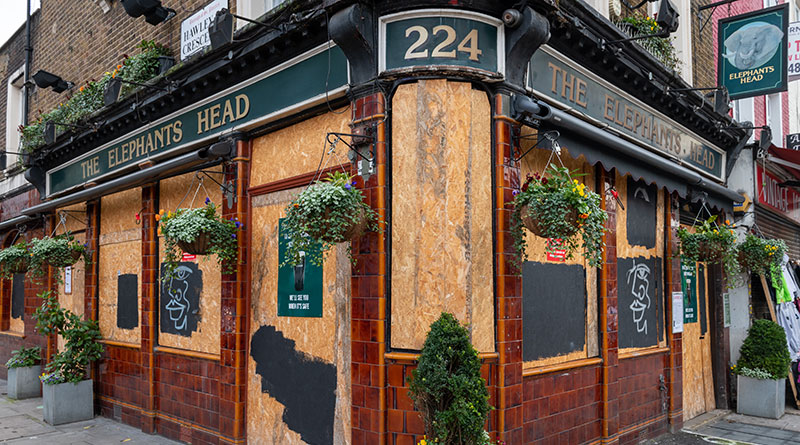Hospitality Insolvencies Ease But Stay High After 880 Hit Wall In Q2

The number of hospitality businesses entering insolvency eased slightly in the first half of 2025, yet remained historically high, reflecting challenging trading conditions for the industry.
Some 1,706 accommodation and food service companies, including hotels, restaurants and pubs, closed in the six months to June 2025, down 5.5% from 1,806 for the first half of 2024, according to government data. Q2, however, saw a 6.5%% increase over Q1, with 880 companies in trouble. Offering little cheer, the number of monthly hospitality insolvencies has remained consistently over 270 so far this year.
The Buchler Phillips Hospitality Index of insolvencies, which has tracked monthly figures since January 2014, rose from 181.2 in March to 197.3 in June. It peaked in August 2023 at 273.4 with a spike in the sector’s business closures.
High profile operators closing high street units have included Italian restaurant chain Gusto, bar owner Brewdog, 19-strong pubs group Oakman Inns, pizza giant Papa Johns, and Busabai Eathai, created by Wagamama founder Alan Yau.
Jo Milner, Managing Director of the leading turnaround and restructuring firm, said: “It’s not getting any easier out there; if anything, it’s tougher. Hospitality is stuck near the top of the insolvency league table for now, anchored there by pressure on consumer spending and a number of forces behind higher staff costs.”
Hospitality businesses face an estimated £3.4bn of additional expenses, not least because of the increase in employers’ National Insurance contributions. Industry leaders have warned that potentially higher mandatory pension contributions for staff could be the final nail in the coffin for some companies.
Saxon Moseley, partner and head of leisure and hospitality at leading audit, tax and consulting firm RSM UK, said: “We’ve not hit the heights of last year’s spike, but insolvencies continue to creep up which is a worrying, but not unexpected trend. The hospitality industry has been acutely hit with higher staff costs and rising inflation, and when you overlay subdued sales, continuing to operate has become unviable for some.
“With many operators still in survival mode, the industry is struggling and as a key job creator, particularly for younger workers, a fragile hospitality industry presents an economic headache for the UK. Taking steps to overhaul the business rates system, plus supporting the industry to respond to recent tax increases would allow operators to not only weather the storm, but invest in jobs for the future
